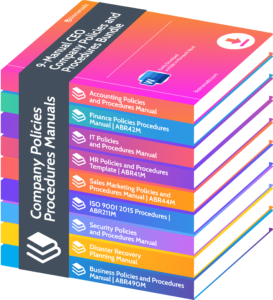COO Excellence Navigating Business Operations Management

Welcome, ambitious COOs! As a vital leader in a company, you constantly strive for excellence in managing business operations. In today’s fast-paced and constantly evolving business world, being a successful COO can be a daunting task. But don’t fret, this article will provide valuable insights and strategies to help you navigate and excel in your role. Let’s maximize your potential and elevate your COO game! COO Excellence Navigating Business Operations Management.
What is Business Operations Management?
This role involves overseeing and directing the core business activities, ensuring efficiency and effectiveness. It includes planning, organizing, and supervising the production and provision of goods and services, as well as implementing strategies to streamline processes, optimize resources, and achieve organizational objectives. The main focus is on improving productivity, quality, and customer satisfaction while also managing costs and risks.
Why is COO Excellence Important?
As the second-in-command of a company, the Chief Operating Officer (COO) plays a crucial role in ensuring the success of business operations. In this section, we will discuss why striving for COO excellence is vital for any organization.
We will explore the various ways in which a COO can contribute to the overall success of a company, such as streamlining processes, reducing costs, improving efficiency, and enhancing the customer experience. By understanding the importance of COO excellence, we can better appreciate the critical role that COOs play in driving business success.
1. Streamlining Processes
Optimizing business operations requires streamlining processes. Here are the key steps:
- Analyze current processes to identify any inefficiencies.
- Map out the ideal workflow.
- Identify and eliminate any bottlenecks.
- Automate repetitive tasks whenever possible.
- Implement technological solutions to ensure smoother operations.
To achieve excellence as COO, it is important to prioritize continuous process improvement and invest in technologies that facilitate streamlined operations.
2. Reducing Costs
- Conduct thorough cost analysis to identify areas of overspending and find ways to reduce costs.
- Implement lean methodologies to streamline processes and minimize waste and ultimately decrease expenses.
- Negotiate with suppliers for better pricing and explore bulk purchasing options to save money.
- Invest in technology to automate tasks and reduce manual labor costs and ultimately cut down on expenses.
3. Improving Efficiency
- Implement technology to automate and streamline processes for improving efficiency.
- Optimize resource allocation and utilization to increase efficiency.
- Provide regular training to enhance employee skills and productivity and improve efficiency.
- Establish clear performance metrics and KPIs to monitor and improve operational efficiency.
4. Enhancing Customer Experience
To excel as a COO in enhancing customer experience, it is essential to:
- Gather insights into customer needs through surveys and feedback.
- Tailor services to meet individual customer preferences.
- Establish efficient communication channels for prompt resolution of issues.
- Provide training for staff to prioritize customer satisfaction.
To achieve excellence in customer experience as a COO, it is crucial to focus on proactive problem-solving and continuous improvement of services.
What are the Key Responsibilities of a COO?
As a Chief Operating Officer (COO), you play a crucial role in the success of a company by overseeing and managing its day-to-day operations. In this section, we will discuss the key responsibilities of a COO and how they contribute to the overall functioning and growth of an organization. From strategic planning and resource management to performance monitoring and team leadership, each aspect is essential for a COO to excel in their role. Let’s delve into each responsibility and understand its significance in navigating business operations management.
1. Strategic Planning
- Establish clear goals and objectives aligned with the company’s mission and vision for strategic planning.
- Analyze internal and external factors, including strengths, weaknesses, opportunities, and threats, to identify potential strategies.
- Develop strategies to capitalize on strengths and mitigate weaknesses.
- Allocate resources effectively to support the strategic initiatives and ensure success in the planning process.
2. Resource Management
- Establish clear goals and targets for resource management and allocation.
- Regularly assess resource utilization and adjust accordingly to meet business needs.
- Implement efficient tools and technologies for resource allocation.
- Provide training to enhance employees’ skills in resource management.
3. Performance Monitoring
- Set clear performance metrics aligned with organizational goals.
- Implement a robust performance tracking system to monitor KPIs and ensure effective performance monitoring.
- Regularly analyze performance data to identify trends and areas for improvement in regards to performance monitoring.
- Provide timely feedback and recognition to motivate teams and individuals and improve performance monitoring.
4. Team Leadership
- Establish clear expectations and objectives for the team.
- Offer support and resources to empower team members.
- Promote open communication and collaboration within the team.
- Lead by example and demonstrate effective decision-making as a team leader.
How to Achieve COO Excellence?
As the Chief Operating Officer (COO) of a company, it is essential to strive for excellence in managing business operations. In this section, we will discuss the key elements that contribute to achieving COO excellence.
These include continuous improvement, data-driven decision making, effective communication, and collaboration with other departments. By implementing these practices, COOs can enhance their leadership skills and drive their company towards success. So, let’s dive into the strategies for achieving COO excellence.
1. Continuous Improvement
- Set clear improvement goals for business operations.
- Regularly assess current processes to identify areas for enhancement.
- Implement changes gradually to ensure minimal disruption.
- Encourage feedback from employees and stakeholders to drive improvement initiatives.
Pro-tip: Embrace a culture of continuous improvement to foster innovation and maintain a competitive edge.
2. Data-Driven Decision Making
- Collect relevant data from reliable sources.
- Utilize analytical tools to process and interpret the data.
- Implement data-driven insights into decision-making processes.
- Regularly update and refine data collection and analysis methods.
Did you know that 73% of companies that excel in decision-making strongly agree that they are skilled in utilizing data to drive their decisions?
3. Effective Communication
- Active Listening: COOs should practice attentive listening to understand concerns and ideas effectively.
- Clear Messaging: Communicate goals and expectations with clarity to ensure team alignment.
- Feedback Culture: Foster an environment where open and constructive feedback is encouraged to promote effective communication.
- Utilize Various Channels: Embrace diverse communication channels such as meetings, emails, and collaborative tools to facilitate effective interaction.
4. Collaboration with Other Departments
- Identify key departments: Understand the functions and objectives of other departments within the organization to promote collaboration.
- Cross-functional teams: Foster collaboration by creating cross-departmental teams to tackle specific projects or issues.
- Regular communication: Establish regular communication channels to share information, updates, and align strategies with other departments.
- Shared goals: Align departmental goals with the overall business objectives, promoting unity and collaboration among all departments.
Challenges Faced by COOs
As a Chief Operating Officer (COO), you are responsible for overseeing the day-to-day operations of a company. However, this role also comes with its fair share of challenges. In this section, we will discuss the various challenges faced by COOs and how they navigate them to ensure the smooth functioning of the business. From balancing short-term and long-term goals to managing stakeholder expectations, adapting to a rapidly changing business environment, and dealing with operational issues, being a COO requires a diverse skill set and strategic thinking. Let’s dive into these challenges and learn how COOs excel in their role.
1. Balancing Short-Term and Long-Term Goals
- Create a strategic roadmap that aligns short-term objectives with long-term vision.
- Establish key performance indicators (KPIs) for both short-term and long-term goals.
- Regularly review and adjust plans to ensure that short-term actions contribute to long-term success.
- Implement a flexible resource allocation strategy to support both short-term and long-term initiatives.
2. Managing Stakeholder Expectations
- Evaluate stakeholder needs and expectations thoroughly.
- Communicate transparently and regularly with stakeholders to effectively manage their expectations.
- Align business goals with stakeholder expectations to ensure mutual understanding and satisfaction.
- Implement feedback loops to promptly gather and address stakeholder concerns.
3. Adapting to Changing Business Environment
- Stay Informed: Monitor industry trends, technological advancements, and changes in consumer behavior to adapt to the ever-changing business environment.
- Flexibility: Adjust operational strategies and processes to align with the evolving business landscape.
- Strategic Partnerships: Collaborate with other industry leaders and experts to gain insights and stay ahead of market shifts in the constantly changing business environment.
- Talent Development: Cultivate a workforce that embraces change and possesses the necessary skills to thrive in dynamic business environments.
Fact: According to a survey by McKinsey, 82% of executives believe that adapting to changing business environments is crucial for continued success.
4. Dealing with Operational Issues
- Identify the root cause of operational issues by thoroughly analyzing the processes and systems in place.
- Implement solutions that specifically address the challenges faced, such as upgrading technology or adjusting workflows.
- Establish clear performance metrics to track improvements and ensure the effectiveness of the solutions.
- Regularly communicate with the operational teams to gather insights and maintain transparency throughout the resolution process.
Pro-tip: Encouraging a culture of continuous improvement can help prevent operational issues and drive sustained excellence.
Business Operations Management
In order to ensure effectiveness and efficiency, business operations management entails supervising and managing the primary business operations. It entails organizing, planning, and managing the production and delivery of goods and services in addition to putting strategies into place to maximize resources, streamline workflows, and accomplish organizational goals. While controlling expenses and risks, the primary goals are raising customer satisfaction, productivity, and quality.
Frequently Asked Questions

What is COO Excellence: Navigating Business Operations Management?
COO Excellence: Navigating Business Operations Management is a comprehensive program designed for Chief Operating Officers (COOs) to develop the skills and strategies needed to effectively navigate the constantly changing landscape of business operations management.
Who is this program for?
This program is designed specifically for Chief Operating Officers (COOs) who are responsible for managing and overseeing the day-to-day operations of a company.
What topics are covered in this program?
The program covers a wide range of topics including strategic planning, financial management, supply chain management, risk management, and leadership development. It also provides insights into the latest trends and best practices in business operations management.
How is this program delivered?
This program is delivered through a combination of online learning materials, live webinars, and interactive workshops. Participants will also have the opportunity to network with other COOs and industry experts.
What are the benefits of participating in this program?
Participating in COO Excellence: Navigating Business Operations Management can help COOs enhance their leadership skills, develop a deeper understanding of business operations, and stay ahead of the curve in a constantly evolving business landscape.
How can I register for this program?
You can register for COO Excellence: Navigating Business Operations Management by visiting our website and filling out the registration form. You can also contact our team for more information or to request a group registration for your company.

















Leave a Reply